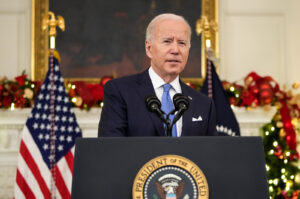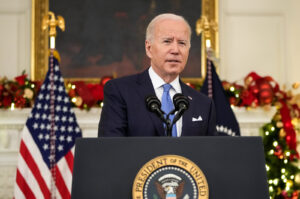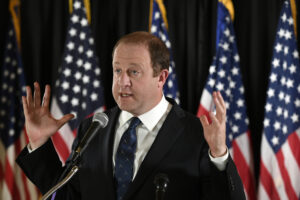As Trump impeachment hearings go public, previous transcripts shed light on roles Texas lawmakers may play
6 min read
WASHINGTON — If past is precedent, Republican U.S. Rep. John Ratcliffe of Heath will be the Texan to watch during the public impeachment inquiry hearings aimed at President Donald Trump beginning this week.
An ardent Trump supporter, Ratcliffe was by far the most adversarial Texan when it came to questioning people testifying in the closed-door depositions that took place at the U.S. Capitol in recent weeks, according to a Texas Tribune review of thousands of pages of transcripts released in recent days. The testimony took place throughout most of October.
At issue in the inquiry is whether Trump threatened to withhold military aid from Ukraine in order to spur an investigation into the business activities of Hunter Biden, the son of former Vice President Joe Biden, a leading Democratic candidate to challenge the president in next year’s election. Ratcliffe pushed witnesses at least twice for explicit evidence of a quid pro quo between Trump and Ukrainian leadership.
Ratcliffe will appear in the televised hearings commencing Wednesday morning. So will his fellow Texans on the House Intelligence Committee: Republican U.S. Reps. Mike Conaway of Midland and Will Hurd of Helotes, and Democratic U.S. Rep. Joaquin Castro of San Antonio.
In his committee assignments, Ratcliffe has long served as a defender of Trump in congressional hearings — so much so that Trump nominated Ratcliffe to serve as the director of national intelligence, but Ratcliffe subsequently withdrew himself from contention amid questions over his qualifications for the job.
But Ratcliffe’s tenacity did not stop with that setback. He frequently harkened back to his past career as a federal prosecutor in his questioning of witnesses during closed-door impeachment inquiry hearings. The most charged exchange was with Army Lt. Col. Alexander Vindman, an expert on Ukraine who listened in on Trump’s July call with Ukrainian President Volodymyr Zelensky.
Repeatedly, Ratcliffe asked Vindman for the specific wording in the partial transcript of the call that indicated a quid pro quo.
“This whole matter had been unfolding over the course of months,” Vindman said. “On the 10th of July … it became completely apparent what the deliverable would be in order to get a White House meeting.
“That deliverable was reinforced by the president. … The demand was, in order to get the White House meeting, they had to deliver an investigation,” he added. “That became clear as time progressed from how this thing unfolded through the 10th all the way through the conclusion. … That’s just the way it seemed to me.”
Ratcliffe also asked Vindman, who was born in Soviet-era Ukraine, about Vindman’s advice to Ukrainian officials to avoid engaging in American domestic politics.
“A week following you listening in on a phone call with the president of the United States making a request of the Ukrainian government to assist in an ongoing investigation, a member of his National Security Council subsequently told Ukrainian officials to do just the opposite and to ignore his request and stay out of U.S. politics,” Ratcliffe said.
“I, as a director on the National Security Council, would certainly not counsel my counterpart to somehow involve themselves into U.S. domestic politics,” Vindman responded.
Meanwhile, U.S. Secretary of Energy Rick Perry was also a recurring character in the testimony transcripts. Witnesses characterized the former Texas governor as an emerging diplomatic force between Ukraine and the United States amid the abrupt dismissal of the previous U.S. ambassador, Marie Yovanovitch.
The U.S. ambassador to the European Union, Gordon Sondland, named Perry, former Ukraine envoy Kurt Volker and himself “the three amigos” in handling Ukrainian diplomacy. Sondland testified the triumvirate “sort of took it upon ourselves along with the blessing of Secretary [of State Mike] Pompeo to help support Ukraine during the ambassadorial transition.”
William B. Taylor, who is temporarily the top American diplomat to Ukraine, and other witnesses concluded that Perry’s involvement was logical because of Ukraine’s natural resources and energy pipelines. Taylor is expected to appear at Wednesday’s hearing.
But both Taylor and National Security Council official Fiona Hill indicated that Perry appeared uninvolved in much of the back-channeling between the president and Ukrainian leadership.
“Secretary Perry had been talking at great length about [the] energy sector and corruption. And at no point did I think that anything Secretary Perry said referred to any of these issues that are under discussion today,” Hill said.
Perry has not cooperated with the Congressional investigation and is set to resign from his post Dec. 1.
Democratic counsel Daniel Goldman and House Intelligence Chairman Adam Schiff, D-California, tried to pin down Sondland on whether he and Perry had coordinated testimony.
When asked if he had discussed “anything with [Perry] related to the topics” of his testimony, Sondland replied, “I don’t recall, because we talk a lot. We talk a lot about a lot of things. We’re friends.”
Sondland later stated that he could not remember an incident during which he threatened the Ukrainians in a meeting, as some press reports alleged. He said he called Perry to find out if their recollections on the matter matched.
Most Texans who attended depositions remained quiet and allowed committee counsel to dominate the questioning. But a Texan would occasionally jump in, though Texas Democrats were largely silent throughout the proceedings.
Republican U.S. Rep. Chip Roy of Austin peppered Sondland with a series of questions to bolster Perry. Roy is a past ghostwriter for a Perry political book. Roy on occasion referred to Perry as “governor,” and asked, “Gov. Perry was moving the ball forward with respect to our policy objectives and what we were trying to do to strengthen our position vis-a-vis Ukraine?” Sondland answered in the affirmative.
A transcript also confirmed the details of an Oct. 22 flareup in which Roy yelled at House Intelligence Committee Chairman Adam Schiff, D-California.
Roy caused a disturbance over the fact that members who do not serve on the relevant committees for the closed-door hearings — the committees on Intelligence, Foreign Affairs, and Oversight and Reform — were not allowed in the room.
Schiff refused to recognize Roy to speak and told the freshman to “take your comments outside.”
Roy retorted, calling the deposition “a clown show.”
Schiff then chastised Roy for derailing a hearing featuring a witness, Taylor, who had traveled from Ukraine.
Roy continued but was ruled out of order, to which he responded, “This whole hearing is out of order.”
For all the complaints about non-committee members barred from the hearings, attendance among relevant committee members was inconsistent and at times scant. In several sessions, no Texans at all appeared. To be sure, there were competing hearings throughout these rounds of testimony, and some of these depositions took place during a congressional recess.
U.S. Rep. Michael McCaul, R-Austin, frequently wondered why “it was inappropriate” for the president to bring up “corruption” in his late July phone call to Zelenksy.
The White House-released readout of the phone call did not include the word “corruption.” Instead, the president probed Zelenksy over an unproven conspiracy theory that a hacked Democratic National Committee server was in Ukraine and encouraged his counterpart to investigate the business activities of the younger Biden.
“If the president brings up corruption in his phone call, which I think he’s — and certainly as the commander in chief should do … I guess I, I’m not quite understanding why that’s inappropriate?” McCaul asked during the questioning of Vindman.
The Article was originally published on As Trump impeachment hearings go public, previous transcripts shed light on roles Texas lawmakers may play.







